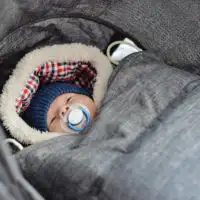As wonderful as it is to travel as a family, the opportunity will come along for your teenager to travel without you — on a school field trip, with a church humanitarian mission, or maybe with a ski or language club. Preparation is the key to getting them ready so you can feel comfortable letting them embark on their first “solo” adventure.

In most organized group travel involving youth, you can be sure that the advance planning is thorough and begins long before the trip takes place. There will be packing lists issued, paperwork to fill out, pre-payments collected, and maybe even local “meet-ups” so that the participants can get to know each other before traveling together.
But for your own piece of mind, there are several key points you should think about during the planning process. These involve packing, money, safety, health and communication.
What needs to be packed?
When packing, understand the activities your child will be participating in and the local climate. If a lot of walking is involved, consider a second pair of sneakers. Some sites, such as houses of worship, necessitate appropriate dress. Your teen will undoubtedly bring along their electronic devices; will they need adapters for their chargers so they can be plugged into foreign outlets? If in the case of remote or tropical destinations, it could be helpful to pack flashlights, insect repellent and wet wipes.
If they are going with an organization, chances are, you’ll be getting a checklist suggesting what to pack based on their itinerary. Find out if laundry facilities will be available where they are going, and if so, if they’ll need coins in local currency.
Debbie Barrick, a New York mom of three, helped prepare her son for a six-country, 21-day European trip with the People to People Student Ambassador Program. They were provided a detailed packing list, down to the number of shirts and pants each participant should bring. In some of the stops on their itinerary, there were laundry facilities. In case he wasn’t able to do his laundry, Barrick packed him twice the amount of socks and underwear he would need, buying inexpensive brands that he could throw away after use.
What does your child need to know about staying safe?
Travel will instill maturity in your teen, but even so, you must have conversations with them before they go about personal safety. You should review what to do if they get separated from their group, how to use an ATM discreetly, how to keep their money and personal documents safe, and how to be aware of the people around them.
Adventures Cross-Country, a service-oriented youth group travel operator, supplies a comprehensive travel planning guide on its website. The organization recommends that you register your child’s itinerary with the U.S. State Department’s Smart Traveler Enrollment Program (STEP). This free service allows U.S. citizens traveling abroad to enroll their trip with the nearest U.S. Embassy or Consulate. In an emergency, they can help you and your child get in touch with each other.
Tanya Prater, an Ohio mom with three kids, travels often, blogging about her family’s adventures at The Traveling Praters. She helped her 17-year-old daughter plan her first solo trip to Myrtle Beach with a friend over spring break, and her 20-year-old son went to Honduras on a weeklong mission through their church and Louder than Words Ministries. He helped build churches, repair homes and run a Vacation Bible School.
Over many family trips, Prater has talked to them about how important it is to be aware of their surroundings, to choose their destinations carefully and to travel with other people as much as possible. “Even though my kids are young adults, I still get a bit nervous when they travel without me,” she admits. “So I do quiz them and ask them ‘what if’ type questions. So far, they’ve given me good answers that I hope they never need to put into practice.”
When Barrick’s son traveled alone, he was part of a group of 20 junior high and high school students from the Hudson Valley region because the People to People Student Ambassador Program assigns participants into regional groups. An important component of the trip preparation was meeting as a group with the other kids and the program representatives every other month for several months before they traveled. Not only did they get to know each other first, they also reviewed how they would be expected to dress and behave, as well as safety issues. The group had a buddy system, and its four chaperones did frequent head counts.

Will they need spending money?
Of course they will, but the question is how much do you let them bring? It’s wise to provide them with a source for emergency funds — such as a debit card or pre-paid credit card — as well as cash on hand for incidentals. You should make your expectations known in terms of their spending limits. They should “chip in” with their own money, too, to give them a better awareness of what things cost in other countries.
Prater didn’t impose spending limits on her kids because they weren’t spending her money. They have jobs, and used their own. Her son packed one credit card for emergency purposes and $40 cash for food and souvenirs. When her daughter traveled to Myrtle Beach, she primarily used her debit card to pay for her room, food and activities. She carried enough cash for taxis and tips.
For Barrick’s son, most of his expenses were pre-paid through his program, so they only had to bring nominal spending money. To handle this, Barrick did two things. She purchased a pre-paid Visa card that he could use as a debit account, and she also exchanged a set amount of U.S. dollars into Euros through her local bank, so he wouldn’t have to deal with exchanging money on the road.
What can you do to ensure they stay healthy?
It’s not fun to think about potential medical issues that your child may encounter, but preparation is peace of mind. Find out what, if any, access they will have to a doctor or other medical care. Review their health history, and type up a small card listing basic information for them to keep with them. Include information such as emergency contacts, health insurance account number, chronic conditions or past serious illnesses, past surgeries, current medications taken (dose and frequency), and current allergies.
Everyone can benefit from basic first aid training, and especially teenagers traveling abroad. Chances are, they won’t need to use what they learn about CPR, but they may need to know about wound care. Traveling to certain foreign countries requires vaccinations, and these need several weeks to months to take effect. You may want to consider a tetanus booster, too. For Prater’s son, traveling to Honduras meant preparations for potential gastrointestinal issues. He was given a prescription of the antibiotic Ciprofloxacin, in case he needed it.
By the time they’re teens, kids with allergies usually know what they need to do to avoid reactions, or treat symptoms. If they carry an EpiPen, extras should be provided to their traveling companions. Sources such as Select Wisely offer translation cards for food and drug allergies, special diets and medical needs. Your child should carry one on them to explain their condition at restaurants, or, in case of an emergency, to medical responders.
How will you stay in touch?
Thankfully, we live in an age of easy, inexpensive technology to stay in contact with our children in all but the most remote parts of the world. It’s important to figure out in advance how you will communicate with them while they are away, and how often you expect them to touch base.
Since Prater’s daughter was traveling in the U.S., she called or texted once a day to check in. Her son was not able to make contact at all during the entire week. Barrick communicated with her son with an international cell phone, but mainly through texts. They agreed to touch base at least once a day. “We had their itinerary, and the parents were encouraged to fax notes to them at each hotel to let them know we were thinking about them,” says Barrick.
If they use a cell phone to call you, make sure they memorize your contact numbers, or write them down, instead of relying on speed dial or directory storage. Excessive phone use can be a safety issue, as well. Make sure they realize the potential dangers of having their ear plugs in — and not being able to hear what’s going on around them — as well as texting while walking, especially when crossing busy streets.
Despite the challenges and the amount of planning involved, both Barrick and Prater are happy their children have had their own solo-travel experiences. “My son had experiences we never would have had traveling as a family, such as going white water rafting in Switzerland, and meeting a member of British parliament,” says Barrick. “We would definitely do something like this again, especially in an organized program. It was well worth it for the lifelong memories he has.”
More From Family Vacation Critic:
High School Study Abroad Programs
10 Safety Tips for Traveling With Teens
Our team of parents and travel experts chooses each product and service we recommend. Anything you purchase through links on our site may earn us a commission.






